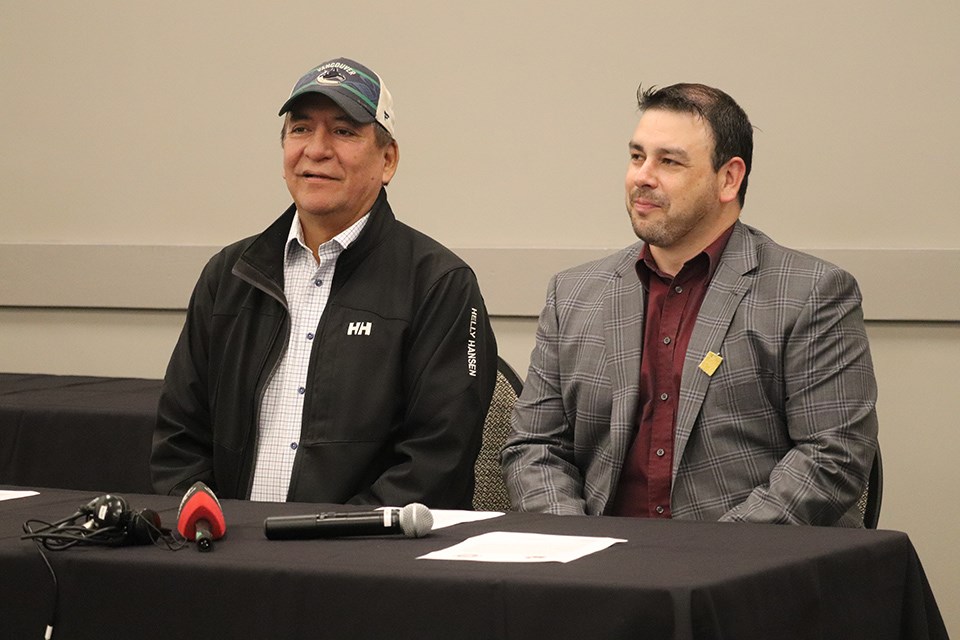Both McLeod Lake Indian Band and Lheidli T’enneh First Nation are requesting a forensic audit of School District No. 57 (SD57) funding.
The Chiefs of both First Nations say that, during the past two decades, their communities have sent millions of dollars to SD57 to pay for the education of their students.
They claim the answers they've received about how the funds have been spent have been anything but transparent or stated with accountability.
Dayi Clay Pountney, Chief of the Lheidli T’enneh Nation, and McLeod Lake Indian Band Chief Harley Chingee recently sent a joint letter to SD57 requesting a forensic audit be conducted to provide answers to their communities.
Both Nations have Local Education Agreements (LEAs) that require SD57 to report annually on how funds were spent but the Nations say this requirement has not been adhered to. LEAs cover the education and support provided to on-reserve students.
The Chiefs are also wanting to know more about how Core funding for off-reserve students is being used, along with special program funds such as Targeted Dollars, English Language Learning (ELL) and others.
“It has been noticeably clear to us that transparency and trust needs to improve between SD57 and First Nations," says Dayi Pountney in a news release today (Feb. 1).
"The forensic audit will show in detail where the dollars have been spent. While we would like to look back at the past 20 years, we feel that an audit of spending of our dollars during the past seven years is reasonable."
One of the key reasons the Nations are calling for a forensic audit is that there is a clear gap in educational outcomes between Indigenous students and non-Indigenous students, which is viewed by both Nations as a persisting legacy of colonialism. The Nations believe that concerted efforts and proactive measures are required to eliminate this gap and contribute to reconciliation in education.
“This is about trust. This is about the relationship between SD57 and First Nations. Our job as leaders is to support our students in every way possible. We need to assure our members that when they send their kids to school, every support possible is given to their children to help them succeed,” adds Dayi Pountney.
“The only way we can achieve this is by knowing where and how the dollars we send each year are being spent. We ask that the SD57 Board of Education support our request for a forensic audit and that it be conducted as quickly as possible.”
Both Nations note that graduation rates in SD57 are proving to be extremely low for all students. Over the last five years, the graduation rate for Indigenous students has ranged from 39 to 52 per cent.
Comparatively, over the same time frame, the graduation rate for non-Indigenous students has ranged from 67 to 79 per cent.
The Nations think that the funding they provide to SD57, should be going to educational supports for their students to produce better graduation outcomes and student success.
“Our Education teams keep asking for details about how the funds we send each year are spent, and all we have received so far is correspondence in ‘Draft’ form. All we want to know is where and how the dollars we send to SD57 each year are being spent,” says McLeod Lake Indian Band Deputy Chief Jayde Duranleau.
“We do not feel that we are asking too much. Our communities together have sent millions of dollars to SD57 in the past 20 years. When our members ask how these dollars are being spent and we cannot answer their questions, we feel that we are letting them down as Council members and staff. At this point we feel that only a forensic audit will produce the answers our members deserve and help restore the relationship with SD57.”
Both communities have also asked that SD57, the Ministry of Education, or the First Nations Education Steering Committee (FNESC) cover the fees for the forensic audit.



